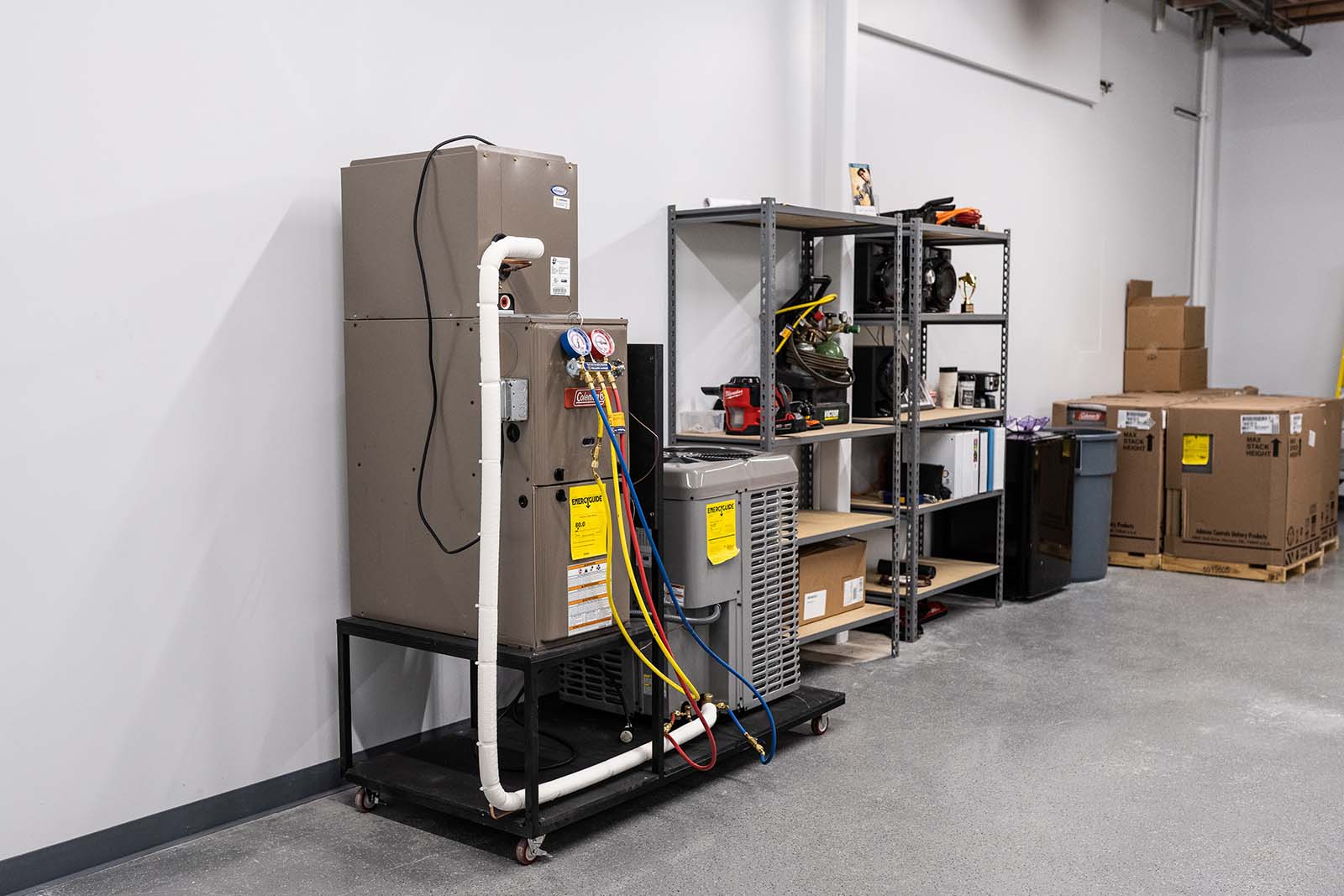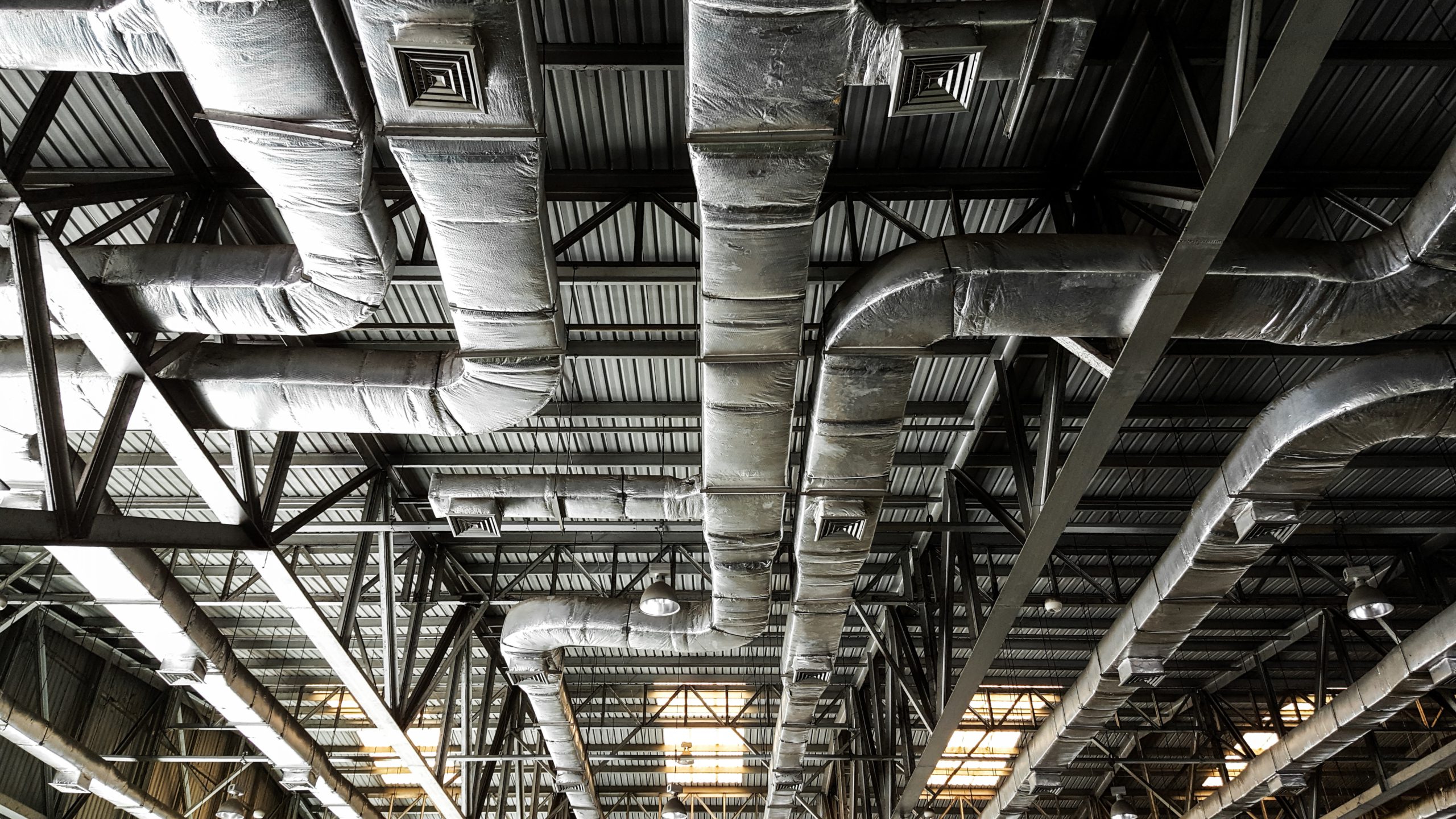Commercial HVAC Repair to Maintain Your Business Running Smoothly
Commercial HVAC Repair to Maintain Your Business Running Smoothly
Blog Article
An Extensive Take A Look At A/c Solutions and Their Influence on Energy Effectiveness and Price Savings
The duty of heating and cooling solutions in enhancing energy effectiveness and attaining cost financial savings is more critical than ever, as home owners and businesses look for lasting options in a progressively eco-conscious globe. With technical developments like smart thermostats and high-efficiency components, the capacity for enhancing system performance is large. Yet, the true impact of these advancements depends largely on regular upkeep and positive issue management. As we explore the complex connection between heating and cooling systems and functional costs, including the change in the direction of eco pleasant alternatives, the question emerges: exactly how can these techniques be efficiently applied to make the most of both financial and eco-friendly benefits?

Importance of Cooling And Heating Equipments
HVAC systems are an important element of contemporary buildings, playing a crucial duty in keeping healthy and balanced and comfortable indoor settings. These systems, incorporating air, home heating, and ventilation conditioning, are necessary for managing temperature level, moisture, and air quality, thereby ensuring the well-being of passengers. Effective cooling and heating systems contribute dramatically to producing an ideal interior environment, which is critical for both industrial and residential areas.
In industrial buildings, heating and cooling systems are integral to offering a secure and effective setting. By controlling indoor climate problems, these systems aid stop the growth of mold and mildew and the spread of air-borne contaminants, therefore safeguarding the health of staff members and clients. Additionally, in household settings, a/c systems improve living problems by offering regular thermal comfort and enhancing interior air top quality, which is vital for general health and wellness.
In addition, the layout and upkeep of cooling and heating systems have a straight influence on power consumption and operational costs. Properly designed and preserved systems can substantially reduce power usage, resulting in lowered energy costs and a smaller carbon impact. The efficiency of these systems therefore plays an essential role in promoting sustainability and energy preservation within buildings, highlighting their value in the modern-day architectural landscape.
Breakthroughs in HVAC Technology
Development in a/c technology is changing the method structures manage indoor environments, ushering in a new period of efficiency and control. Recent innovations have actually concentrated on optimizing energy intake while improving customer convenience. One noteworthy growth is the assimilation of smart thermostats, which make use of artificial knowledge to find out tenancy patterns and change temperatures appropriately, decreasing unnecessary power use.
Variable Cooling Agent Circulation (VRF) systems represent another substantial leap forward. These systems enable for precise temperature level control in different areas of a building, enhancing convenience and minimizing power waste. VRF technology is particularly helpful for huge commercial spaces, offering flexibility and scalability.
Furthermore, the development of Net of Things (IoT) devices has changed cooling and heating systems into interconnected networks qualified of real-time data collection and analysis. This connection makes it possible for predictive maintenance, making certain systems operate at peak performance and minimizing unforeseen downtime.
Moreover, improvements in products and style, such as the usage of high-efficiency coils and compressors, have actually improved overall system efficiency - Heating Contractor. The fostering of eco-friendly refrigerants also emphasizes the sector's commitment to sustainability
These technological technologies are critical in minimizing functional expenses and environmental influence, establishing new standards for constructing climate management.
A/c Upkeep and Efficiency
Ensuring optimal efficiency of a/c systems expands beyond technical developments; it likewise hinges on reliable upkeep methods. Regular upkeep is crucial for maintaining efficiency, decreasing energy consumption, and extending the life expectancy of HVAC systems. The main goal is to make sure that all components work at their peak potential, thereby decreasing energy wastage and maintaining constant indoor comfort degrees.
Routine maintenance jobs, such as cleaning or replacing air filters, checking refrigerant levels, and examining ductwork for leakages, are important for preventing unneeded strain on the system. Filthy or clogged filters can obstruct air movement, causing the system to function harder and take in more power. Similarly, insufficient cooling agent levels can decrease cooling down effectiveness, leading to higher operational expenses.
Additionally, routine evaluations by certified specialists can determine possible issues prior to they intensify into costly repair work or system failings. These inspections typically include checking electrical links, calibrating thermostats, and guaranteeing the total honesty of the heating and cooling system. By attending to small issues early, organizations and house owners can avoid unanticipated failures and improve energy effectiveness.
Cost-efficient A/c Solutions
For those seeking to get one of the most out of their heating, air, and air flow conditioning systems without damaging the financial institution, exploring cost-efficient cooling and heating options can make a significant distinction. One prompt step is to invest in programmable thermostats, which permit customers to set specific temperatures look at this site for various times of the day, optimizing energy use and lowering unnecessary usage. By automating temperature level changes, home owners can achieve considerable financial savings on energy expenses.
Normal maintenance is another critical part of affordable cooling and heating monitoring. Ensuring that filters are cleaned up or replaced regularly, ductwork is sealed, and systems are serviced by specialists can avoid costly repair work and boost system durability. Precautionary maintenance not only preserves system performance yet likewise helps in avoiding unexpected breakdowns that can bring about expensive emergency situation fixings.
Additionally, retrofitting existing systems with energy-efficient elements, such as variable speed electric motors or high-efficiency compressors, can be a prudent financial investment. These upgrades enhance operational effectiveness, lower energy usage, and can typically be carried out at This Site a fraction of the expense of a full system substitute.
Environmental Influence Reduction
Minimizing the ecological influence of HVAC systems is crucial in today's pursuit of lasting living. A/c systems are substantial contributors to energy consumption, making up nearly 40% of energy use in business structures. This energy need typically depends on nonrenewable fuel sources, resulting in greenhouse gas exhausts and ecological degradation. Transitioning to a lot more reliable systems, such as those using renewable resource sources, can substantially minimize these effects.
Technological developments in a/c layout and operation, including the integration of wise thermostats and energy-efficient heatpump, are crucial in decreasing carbon footprints. These advancements enable enhanced energy use, minimizing wastage and enhancing overall system performance. Additionally, adopting routine maintenance methods guarantees a/c systems run at peak efficiency, more cutting unnecessary power consumption.
Additionally, the use of ecologically friendly cooling agents is important, as conventional refrigerants, like CFCs and HCFCs, have been terminated because of their ozone-depleting residential or commercial properties. Modern choices, such as hydrofluoroolefins (HFOs), offer reduced environmental risks, lining up with global ecological methods. By welcoming these sustainable methods, HVAC services can play a transformative role in reducing ecological effects, promoting energy performance, and promoting a much more lasting future.
Conclusion

Additionally, the design and upkeep of Heating and cooling systems have a straight effect on power usage and operational costs. Normal upkeep is vital for maintaining efficiency, decreasing power consumption, and expanding the life period of Heating and cooling systems. A/c systems are considerable contributors More hints to energy consumption, accounting for almost 40% of energy use in business structures. Furthermore, embracing routine maintenance practices makes certain Cooling and heating systems run at peak efficiency, more reducing unnecessary power usage.
The change to eco friendly Cooling and heating systems better minimizes functional costs and advertises sustainability. (Heating Contractor)
Report this page